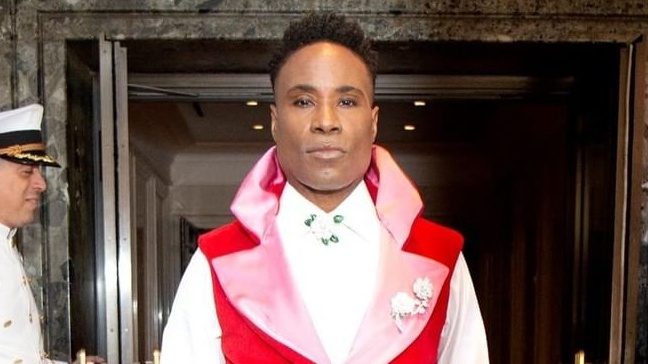Pose star Billy Porter does not take his status as a role model for granted. In fact, he sees it as a badge of honor.
During an interview with actress Rachel Brosnahan, the Pose star described how touched he is when fans reach out to express their admiration. Porter believes those messages are proof that representation is important.
“I’m so moved by all of the people but particularly the little black sissy boys. The little black queens," he explained.
“The ones who are told that their existence on the planet is unworthy. You know, the little trans kid, the little ones. Representation does matter. To have somebody to see and go, if I can just get through the quagmire and get to the other side, I’m going to be all right. I’m going to be able to find my tribe, because it exists.”
The veteran actor came out in during the height of the AIDS crisis. Porter admits he struggled to connect with people who did not understand his brand of authenticity over the course of his 30-year career.
“When I entered this business, it was not popular to be black, gay, out,” Porter recalled.
“I took every hit that came with that. People were telling me that my authenticity was my liability. You’re too much of a sissy. My masculinity was always in question. But the service is inside of my authenticity, choosing my authenticity over my fame.”
This isn’t the first time Porter has been candid about his experiences as a flamboyant, Black gay man. During an interview with the Gay Times, he revealed he has been ridiculed for his fashion choices.
“I’ve always had an outrageous sense of style and fashion," he told Janet Mock.
"I’ve very often been laughed at for the kind of things I wanted to wear. This microscope of masculinity within the media. Men are under this microscope from the moment you hit [the red carpet] and everybody is looking to see if you slip up.”
His red-carpet outfits are now legendary and Brosnahan dubbed him a fashion icon. Porter believes his fashion is an extension of his advocacy.
He was prepared for backlash when he wrote his iconic tuxedo gown.
“I know that there is activism inside of fashion,” he told the The Marvelous Mrs. Maisel star. “I knew that the tuxedo gown at the Oscars would create a conversation surrounding what gender means. When women wear pants, it’s powerful. When men wear a dress, it’s disgusting. We’re not doing that anymore. That dress changed the world.”
Challenging gender norms with clothing is a way for Porter to reclaim something once used as a tool of shame.
“One of the instruments of silencing that I came across when starting is this idea of clothing," he told Mock. "This idea of how you present. The first impression is what people see, right? We have a construct in our society that certain things mean masculine and certain things mean feminine and you can’t cross those boundaries and not be marginalized or ostracized silenced or dismissed for those things."
